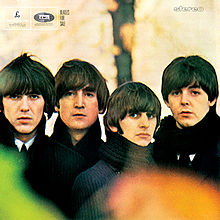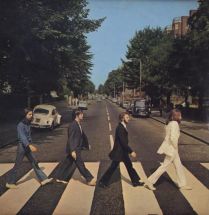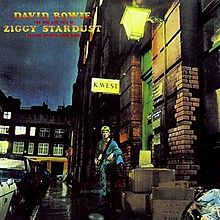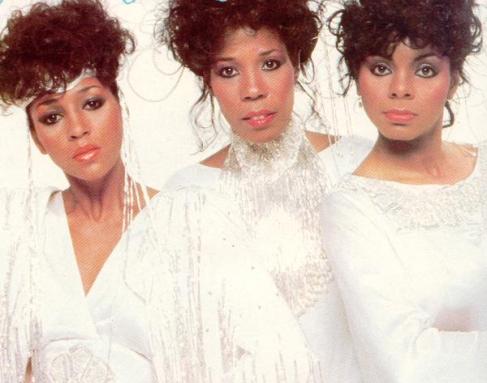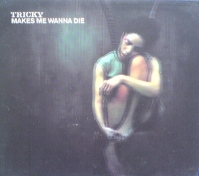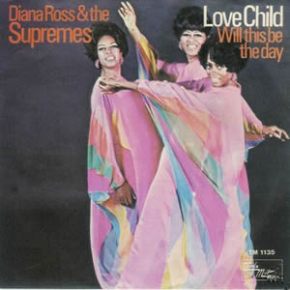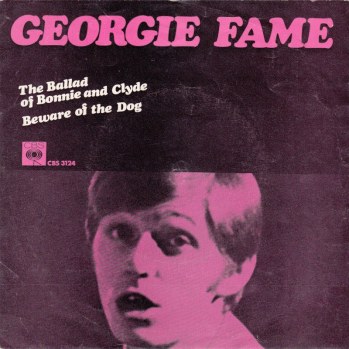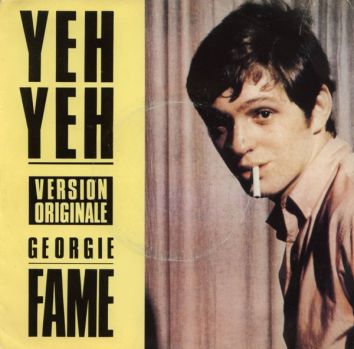I noticed that in this week’s UK album charts (dated 27 April 2013) that Michael Buble held the top spot as well as the bottom spot (number 100) with ‘To Be Loved’ at 1 and ‘Call Me Irresponsible’ at 100. I wondered how often the same artist topped and tailed the charts so looked into it
.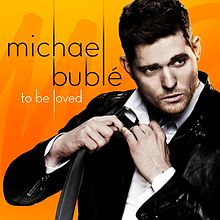
Ignoring cases where albums by Various Artists, Soundtracks or Original Cast recordings were at the top and bottom of the charts, the same artist has topped and tailed the UK album charts 27 times in the 2,962 charts that have been published since 28 July 1956.
Three acts have achieved this feat on three separate occasions – The Beatles, David Bowie and Simon And Garfunkel.
The Beatles did in on 8 May 1965 when ‘Beatles For Sale’ was at 1 and ‘A Hard Day’s Night’ was at number 20. On 10 September 1966 ‘Revolver’ topped the charts while ‘Rubber Soul’ was at number 30. On 24 January 1970 ‘Abbey Road’ was the number 1 album while ‘A Collection Of Beatles Oldies’ brought up the rear.

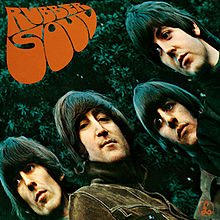
David Bowie’s ‘Aladdin Sane’ was at the top of the charts on 2 June 1973 while ‘Hunky Dory’ was at number 50. Then on 10 November that same year, ‘Pin Ups’ was the bestselling album in the UK and ‘Space Oddity’ completed that charts at number 50. The following year on 22 June 10974, ‘Diamond Dogs’ was at 1 and ‘The Rise And Fall Of Ziggy Stardust’ was at 50.

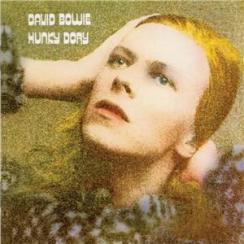


Simon And Garfunkel first had the top and bottom hit on the album charts on 31 August 1968 when ‘Bookends’ was top and ‘Parsley Sage Rosemary And Thyme’ was at 40. ‘Parsely Sage Rosemary And Thyme’ was again the last placed chart album when ‘Bridge Over Troubled Water’ was at number 1 on 1 August 1970. On 16 January 1971 ‘Bridge Over Troubled Water’ was at the top again. This time ‘Bookends’ was at number 50.
The other acts to top and tail the UK album charts are Blondie, The Carpenters (twice), Celine Dion, Cream, Elvis Presley (twice), Michael Buble (twice), neil Diamond, Ocean Colour Scene, Phil Collins, The Prodigy, Queen, Rihanna, Robbie Williams and U2 (twice)
We sometimes refer to a song that we neither like nor hate as being average. But in terms of chart performance, how would one define an average performance on the charts. I decided to look for the song that most closely met the criteria of spending an average number of weeks on the UK singles charts and achieved a highest position closest to the average highest position of all songs achieved.
On the UK singles charts a song spends an average of 6.105 weeks and the average peak position is 35.46. So I looked for songs that spent 6 weeks on the charts peaking at number 35 and ended up with a list of 42 songs. For those really interested, the list is set out below.
This was rather a long list, so I decided to look at which groups had the closest to average overall chart performance. This involved looking at the average number of hits per artist, then seeing which of their chart history most closely resembled the averages discussed above. On average an act has had 2.997 hits on the UK charts, so I worked on 3 hits for this exercise. 2 acts that have had 3 hits came the closest to the average number of weeks and peak position. These were M.F.S.B. (3 hits averaging 6 weeks on the charts and an average peak of 33.33) and The Ritchie Family (3 hits averaging 6.33 weeks on the charts and an average peak of 33.33)
(Ritchie family – more than the average number of kids, but only average chart performance in the UK)
On the South African singles charts (which only ran from 1969 to 1989) the most average acts were the Blue Ridge Rangers and local act Groep Twee which had 2 hits each (average being 1.89) and both averaged a peak position of 8 (average 7.908). At 10.5 weeks average stay on the charts, Groep Twee was closer to the overall average of 10.724 while the Blue Ridge Rangers were not far behind averaging 11 weeks for their two hits.
List of average sings on the UK singles charts (even the mighty U2, Bon Jovi and Bruce Springsteen produced some average hits):
Absolute Reality – Alarm
Pinky Blue – Altered Images
In Your Room – Bangles
Movin’ Out (Anthony’s Song) – Billy Joel
You’ve Made Me So Very Happy – Blood Sweat & Tears
Living In Sin – Bon Jovi
Married Men – Bonnie Tyler
The River – Bruce Springsteen
She’s Mine – Cameo
Love Of The Loved – Cilla Black
Bama Boogie Woogie – Cleveland Eaton
Never Before – Deep Purple
You’re My Best Friend – Don Williams
My Kind Of Girl – Frank Sinatra With Count Basie
You Found Me – Fray
Taste Of Bitter Love – Gladys Knight And The Pips
Woe Is Me – Helen Shapiro
Charlotte Anne – Julian Cope
There’s Something Wrong In Paradise – Kid Creole And The Coconuts
I’m So Happy/Time – Light Of The World
Mammy Blue – Los Pop Tops
The Sweetest Girl – Madness
Soul Provider – Michael Bolton
Get It While You Can – Olympic Runners
Sir Dancealot – Olympic Runners
All My Trials – Paul Mccartney
Give And Take – Pioneers
Nothin’ But A Good Time – Poison
Something To Believe In – Poison
Rockabilly Guy – Polecats
Radio Heart – Radio Heart Featuring Gary Numan
Take To The Mountains – Richard Barnes
Shipbuilding – Robert Wyatt
Just My Soul Responding – Smokey Robinson
Prodigal Son – Steel Pulse
Peek-A-Boo – Stylistics
By The Way – Tremeloes
Fire – U2
Wear You To The Ball – UB40
Doctor Doctor – UFO
Dare To Dream/Both Sides Now – Viola Wills
Old Siam, Sir – Wings
The summer of 1966 was regarded as the summer of love, but did the charts agree with this? I looked at the UK singles charts and analysed the number of songs that had the words ‘love’ or ‘lover’ in the title and discovered that 1990 was the year of ‘love’ as 136 titles contained these words. The next best effort was 1988 which boasted 123 ‘love’ songs. Of the 62 years that the charts have been going for, 1966 came a lowly 40th in terms of number of ‘love’ songs, with only 31 of songs that charted that year containing the word ‘love’ or ‘lover’.
So maybe it wasn’t the number of ‘love’ songs that made 1966 the summer of love, but rather how well the songs performed on the chart. So I looked at the number of times the words ‘love’ or ‘lover’ appeared in song titles each week and added these up. 1966 fared better. The ‘love’ words appeared a total of 255 times on the chart over the year, making it the 27th best year for ‘love’ on this basis. It was, however, still a long way behind 1988 which saw 600 appearances of the ‘love’ words. 1990 had dropped into 4th place with only 500 appearances.
But this method is still slightly flawed as in 1966 there was only a top 50 produced, whereas in later years, a top 75 or top 100 was produced. So the last thing I did was see what percentage of the chart each year was taken up with ‘love’ songs. Here 1966 put in its best performance with 9.62% of the charts being taken up with ‘love’ songs. This, however, only managed to be the 14th best of the 62 years of charts. 1956 won on this bases with 13.11% of the charts being ‘love’ songs that year.
Here is a list of the 31 ‘love’ songs of 1966:
A Love Like Yours – Ike And Tina Turner
A Lover’s Concerto – Toys
A Man Without Love – Kenneth Mckellar
Games That Lovers Play – Donald Peers
Groovy Kind Of Love – Wayne Fontana And The Mindbenders
Have You Ever Loved Somebody? – Paul And Barry Ryan
Have You Ever Loved Somebody? – Searchers
I Couldn’t Live Without Your Love – Petula Clark
I Guess I’ll Always Love You – Isley Brothers
I Love Her – Paul And Barry Ryan
I Love How You Love Me – Paul And Barry Ryan
I Love My Dog – Cat Stevens
I’m Ready For Love – Martha Reeves And The Vandellas
In The Arms Of Love – Andy Williams
It’s Love – Ken Dodd
Love Letters – Elvis Presley
Lovers Of The World Unite – David And Jonathan
Love’s Just A Broken Heart – Cilla Black
More Than Love – Ken Dodd
My Love – Petula Clark
My Lover’s Prayer – Otis Redding
Nobody Needs Your Love – Gene Pitney
Somewhere My Love – Manuel And The Music Of The Mountains
Somewhere My Love – Mike Sammes Singers
Warm And Tender Love – Percy Sledge
What Now My Love – Sonny And Cher
When A Man Loves A Woman – Percy Sledge
You Can’t Hurry Love – Supremes
You Don’t Have To Say You Love Me – Dusty Springfield
You Don’t Love Me – Gary Walker
You Gave Me Somebody To Love – Manfred Mann
These days it seems that the charts change very quickly compared to days of yore, so I decided to have a look and see which year was the most turbulent in terms of movement on the UK singles charts. To do this I took the absolute movement (i.e. I took the number of positions moved as a positive no matter if the song was going up or down) of each song each week and added these up. I then counted up the number of songs there were on the chart each week as the size of the chart has varied over the years. New entries were ignored for these purposes.
From this data I was able to calculate the average movement (up or down) of a song on the chart each year. The top 5 most turbulent years are as follows (average movement in brackets):
1997 (8.711)
2007 (8.707)
1980 (8.534)
2008 (8.358)
1995 (8.275)
Looking at it from a decade point of view, the average movement has increased every decade since the chart’s inception in 1952. The average movement each decade is shown below. It should be noted that the smaller charts in the earlier years, and the fact that we have only had 3 years worth of charts in the 2010’ may skew these figures slightly:
1950’s (2.443)
1960’s (4.884)
1970’s (5.956)
1980’s (7.531)
1990’s (7.805)
2000’s (7.842)
2010’s (8.002)
The single biggest movement by a song in 1997 was 46 positions. This happened twice. Firstly on 10 May 1997 when Tricky’s ‘Makes Me Wanna Die’ fell from 29 to 75 and again the following week (13 May 1997) when Gene’s hit ‘Where Are They Now?’ fell from 22 to 68.
The biggest single movement by a song happened on 23 January 2010 when The Glee Cast’s cover of the Journey classic ‘Don’t Stop Believin’ jumped 94 places from 99 to 5. Interestingly it jumped to 1 spot above Journey’s version which was a non mover that week.
As we approach the end of the year, much excitement is generated in the UK as to what will be the Christmas Number 1. Quite often though, the number one his is not a ‘Christmas’ tune (take Michael Andrews & Gary Jules rather somber cover version of Tears For Fears’ ‘Mad World’ for example.) So, I decided to put together a list of the highest placed ‘Christmas themed’ tune for the chart that was released just before Christmas each year and have listed these below. There were, however some years where the record buying public were in a particularly ‘Bah! Humbug!’ mood and not a single Christmas tune could be found on the chart. I have, in such an instance listed the number 1 single for that chart and marked them with an ‘*’. The position of the ‘Christmas Themed’ tune is in brackets after the year.
For a full list of the Christmas number ones go to:
http://en.wikipedia.org/wiki/List_of_UK_Singles_Chart_Christmas_number_ones
1952: (6) White Christmas – Mantovani
1953: (7) I Saw Mommy Kissing Santa Claus – Beverley Sisters
1954: (2) Santo Natale – David Whitfield
1955: (1) Christmas Alphabet – Dickie Valentine
1956: (12) Christmas Island – Dickie Valentine
1957: (1) Mary’s Boy Child – Harry Belafonte
1958: (10) Mary’s Boy Child – Harry Belafonte
1959: (14) Jingle Bell Rock – Max Bygraves
1960: (4) Lonely Pup (In A Christmas Shop) – Adam Faith
1961: (42) Baby’s First Christmas – Connie Francis
1962: (7) Rockin’ Around The Christmas Tree – Brenda Lee
1963: (21) All I Want For Christmas Is A Beatle – Dora Bryan
1964: (6) Pretty Paper – Roy Orbison
1965: (19) Merry Gentle Pops – Barron Knights
1966: (13) If Every Day Was Like Christmas – Elvis Presley
1967: (1) Hello Goodbye – Beatles*
1968: (1) Lily The Pink – Scaffold*
1969: (8) Winter World Of Love – Engelbert Humperdinck
1970: (1) I Hear You Knocking – Dave Edmunds*
1971: (1) Ernie (The Fastest Milkman In The West) – Benny Hill*
1972: (4) Happy Christmas (War Is Over) – John And Yoko And The Plastic Ono Band With The Harlem Community Choir
1973: (1) Merry Xmas Everybody – Slade
1974: (1) Lonely This Christmas – Mud
1975: (3) I Believe In Father Christmas – Greg Lake
1976: (1) When A Child Is Born – Johnny Mathis
1977: (5) White Christmas – Bing Crosby
1978: (1) Mary’s Boy Child/Oh My Lord – Boney M
1979: (7) Wonderful Christmas Time – Paul Mccartney
1980: (3) Stop The Cavalry – Jona Lewie
1981: (44) Jingle Bells (Laughing All The Way) – Hysterics
1982: (3) Peace On Earth/Little Drummer Boy – David Bowie And Bing Crosby
1983: (15) 2000 Miles – Pretenders
1984: (1) Do They Know It’s Christmas? – Band Aid
1985: (2) Merry Christmas Everyone – Shakin’ Stevens
1986: (38) Santa Claus Is On The Dole/First Atheist Tabernacle Choir – Spitting Image
1987: (6) Rockin’ Around The Christmas Tree – Mel (Smith) And Kim (Wilde)
1988: (1) Mistletoe And Wine – Cliff Richard
1989: (1) Do They Know It’s Christmas? – Band Aid II
1990: (2) Saviour’s Day – Cliff Richard
1991: (43) I’ll Be Home This Christmas – Shakin’ Stevens
1992: (25) No Christmas – Wedding Present
1993: (37) I Was Born On Christmas Day – Saint Etienne
1994: (2) All I Want For Christmas Is You – Mariah Carey
1995: (9) The Gift Of Christmas – Childliners
1996: (8) Your Christmas Wish – Smurfs
1997: (1) Teletubbies Say Eh-Oh! – Teletubbies*
1998: (21) Naughty Christmas (Goblin In The Office) – Fat Les
1999: (8) Mr Hankey The Christmas Poo – Mr Hankey
2000: (1) Can We Fix It – Bob The Builder*
2001: (9) I Believe In Christmas – Tweenies
2002: (6) Puppy Love/Sleigh Ride – S Club Juniors
2003: (5) Santa’s List – Cliff Richard
2004: (1) Do They Know It’s Christmas? – Band Aid 20
2005: (5) Jingle Bells/U Can’t Touch This – Crazy Frog
2006: (2) 21St Century Christmas/Move It – Cliff Richard
2007: (4) All I Want For Christmas Is You – Mariah Carey
2008: (3) Little Drummer Boy / Peace On Earth – Bandaged
2009: (18) Fairytale Of New York – Pogues Featuring Kirsty Maccoll
2010: (17) Christmas Lights – Coldplay
2011: (11) All I Want For Christmas Is You – Mariah Carey
Only 11 of the 60 years listed had a ‘Christmas themed’ song at number 1.
While not ‘Christmas themed’ songs, the following should get honorary mention:
In 1959, Neil Sedaka’s ‘Oh Carol’ was at number 3 (Christmas Carol, geddit?)
In 1969, a Boxing day hit was on the charts with The Plastic Ono band’s ‘Cold Turkey’ being at number 29
In 1970 ‘The Man From Nazareth’ by John Paul Jones was at 46
In 1971 ‘Festival Time’ by the San Remo Golden Strings was at 40.
Who has the highest percentage conversion of hits into number 1’s on the UK charts?
In order to look at this, I felt that an act should have had 5 number 1’s or more to be eligible. This rules out the one hit wonders who would have a 100% conversion rate and this would be somewhat meaningless. I have included number 1’s where an act has achieved this as part of a duet, or has been given a ‘featuring’ credit.
37 acts have achieved the number 1 spot on the UK charts more than 5 times. Of these, the Spice Girls were the most successful in converting their hits into number 1’s. Of their 11 hits, 9 of them made the top spot, a massive 81.8% conversion rate. For those interested it was only ‘Headlines (Friendship Never Ends)’ and ‘Stop’ which failed to reach the top, faltering at 11 and 2 respectively.
All Saints have the second highest conversion rate at 55.6% (5 out of 9). They are followed by Westlife who have converted 14 hits intonumber 1’s (51.9%). JLS made 4th spot with 45.5% (5 out of 11), but as they are still active this may change if they either have further successes or more hits not reaching number 1. The fifth best act at converting their hits into number 1’s is The Beatles who hit the top spot 17 times out of 38 hits.
At the other end of the scale, the least successful artist is David Bowie who has hit the charts 68 times, but only manged 5 number 1’s (7.4%). Others down the bottom are Elton John (7 out of 88 – 8.0%), Queen (5 out of 55 – 9.1%), Rod Stewart (6 out of 61 – 9.8%) and Cliff Richard 14 out of 134 – 10.2%).
Elvis Presley who has had a massive 122 hits made number 28 on this list as 18 of these made number 1, giving him a 14.8% score.
Looking at who has had the most hits on the charts and their respective conversion rate, The Cast of Glee have managed a incredible run of 143 hits without a single number 1. Next best on this list is Depeche Mode who have failed to top the charts with 45 hits.
Other acts who have had 50+ hits but have not done so well in topping the charts are Status Quo (1 chart topper out of 67 hits), Diana Ross (2 out of 63), Stevie Wonder (2 out of 61) and Prince (1 out of 54)
In the US, the Beatles had 20 number 1s, 2 of which returned to the top spot after dropping down. Unlike the UK where they never replaced themselves at the top, their second and third chart toppers (‘She Loves You’ and ‘Can’t Buy Me Love’) followed their first number 1 (‘I Want To Hold Your Hand’).
The Supremes hold the record for dislodging the Beatles from the top of the charts, doing it three times:
‘Come See About Me’ replaced ‘I Feel Fine’
‘Stop In The Name Of Love’ replaced ‘Eight Days A Week’
‘Love Child’ replaced ‘Hey Jude’
The Jackson 5 managed to dethrone the Beatles on 2 occasions:
‘ABC’ replaced ‘Let It Be’
‘The Love You Save’ replaced ‘The Long And Winding Road’
While 4 of the acts who replaced the Beatles at the top in the UK were from the US (Roger Miller, Sonny & Cher,Scott McKenzie & Tommy Roe), only 2 of those replacing them at the top in the US were from the UK (The Rolling Stones and Petula Clark).
Another interesting fact about the songs that replaced the Beatles at number 1 was that the title of John Fred & His Playboy Band’s ‘Judy In Disguise (With Glasses)’ was a play on ‘Lucy in The Sky With Diamonds.’
Here is a list of all the songs that replaced the Beatles at the top of the US charts:
21 March 1964: She Loves You by Beatles replaced I Want To Hold Your Hand
4 April 1964: Can’t Buy Me Love by Beatles replaced She Loves You
9 May 1964: Hello Dolly by Louis Armstrong replaced Can’t Buy Me Love
6 June 1964:Chapel Of Love by Dixie Cups replaced Love Me Do
15 August 1964: Everybody Loves Somebody by Dean Martin replaced A Hard Day’s Night
16 January 1965: Come See About Me by Supremes replaced I Feel Fine
27 March 1965: Stop In The Name Of Love by Supremes replaced Eight Days A Week
29 May 1965: Help Me Rhonda by Beach Boys replaced Ticket To Ride
26 September 1965: Eve Of Destruction by Barry McGuire replaced Help
6 November 1965: Get Off My Cloud by Rolling Stones replaced Yesterday
22 January 1966: The Sound Of Silence by Simon & Garfunkel replaced We Can Work It Out
5 February 1966: My Love by Petula Clark replaced We Can Work It Out
2 July 1966: Strangers In The Night by Frank Sinatra replaced Paperback Writer
16 July 1966: Hanky Panky by Tommy James & The Shondells replaced Paperback Writer
25 March 1967: Happy Together by Turtles replaced Penny Lane
2 September 1967: Ode To Billy Joe by Bobbie Gentry replaced All You Need Is Love
20 January 1968: Judy In Disguise (With Glasses) by John Fred & His Playboy Band replaced Hello Goodbye
30 November 1968: Love Child by Diana Ross & The Supremes replaced Hey Jude
28 June 1969: Love Theme From Romeo & Juliet by Henry Mancini replaced Get Back
6 December 1969: Na Na Hey Hey Kiss Him Goodbye by Steam replaced Come Together
24 April 1970: ABC by Jackson 5 replaced Let It Be
27 June 1970: The Love You Save by Jackson 5 replaced The Long & Winding Road
The Beatles had 17 number 1 hits singles in the UK. Only 1 act manged the feat of knocking them off the top spot twice, and that was Georgie Fame. On 14 January 1965 ‘Yeh Yeh’ dislodged ‘I Feel Fine’ and 3 years later on 24 January 1968 ‘The Ballad Of Bonnie And Clyde’ replaced ‘Hello Goodbye’ at number 1.
Other interesting facts about songs that knocked The Beatles off the top spot are that Peter and Gordon’s ‘A World Without Love’ was the only Lennon and MacCartney song to achieve this and Mary Hopkin’s ‘Those Were The Days’ was the 2nd release on Apple Records (The Beatles own label).
Here is a list of all the songs that replaced The Beatles at the top of the charts:
20 June 1963: ‘I Like It’ by Gerry & The Pacemakers replaced ‘From Me To You’
10 October 1963: ‘Do You Love Me’ by Brian Poole & The Tremeloes replaced ‘She Loves You’
16 January 1964: ‘Glad All Over’ by Dave Clark Five replaced I Want To Hold Your Hand
23 April 1964: ‘A World Without Love’ by Peter & Gordon replaced ‘Can’t Buy Me Love’
13 August 1964: ‘Do Wah Diddy Diddy’ by Manfred Mann replaced ‘A Hard Day’s Night’
14 January 1965: ‘Yeah Yeah’ by Georgie Fame & The Blue Flames replaced ‘I Feel Fine’
13 May 1965: ‘King Of The Road’ by Roger Miller replaced ‘Ticket To Ride’
26 August 1965: ‘I Got You Babe’ by Sonny & Cher replaced ‘Help!’
20 January 1966: ‘Keep On Running’ by Spencer Davis Group replaced ‘Day Tripper / We Can Work It Out’
7 July 1966: ‘Sunny Afternoon’ by Kinks replaced ‘Paperback Writer’
15 September 1966: ‘All Or Nothing’ by Small Faces replaced ‘Yellow Submarine / Eleanor Rigby’
9 August 1967: ‘San Francisco (Be Sure To Wear Some Flowers In Your Hair)’ by Scott McKenzie replaced ‘All You Need Is Love’
24 January 1968: ‘The Ballad Of Bonnie & Clyde’ by Georgie Fame replaced ‘Hello Goodbye’
10 April 1968: ‘Congratulations’ by Cliff Richard replaced ‘Lady Madonna’
25 September 1968: ‘Those Were The Days’ by Mary Hopkin replaced ‘Hey Jude’
4 June 1969: ‘Dizzy’ by Tommy Roe replaced ‘Get Back’
2 July 1969: ‘Something In The Air’ by Thunderclap Newman replaced ‘The Ballad Of John & Yoko’
